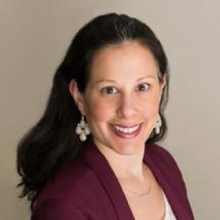Selective Mutism - From Diagnosis to Intervention
Selective Mutism - From Diagnosis to Intervention

October was Selective Mutism Awareness month. Even though the month is over, it’s still fresh enough on the mind to keep the conversation going, as Selective Mutism (SM) is an anxiety disorder that deserves attention. Everyone knows what anxiety is, but far fewer have heard of, or know what Selective Mutism is.
I am asked all the time “What’s SM?” I love being asked this question, because it allows me to convey important information about the disorder and open the lines of communication with the person asking. Selective Mutism (SM) is first & foremost an anxiety disorder in which a child who is otherwise chatty or talkative can’t talk in other settings, like school or with friends. Children with SM might not be able to talk at all in school, or they may be speaking in a whisper or to a limited extent. Some children with SM are able to talk to peers but others can’t do this, even when they want to.
People also ask me, “Isn’t that just shy?” That’s a really common question but no. Being shy isn’t the same as having SM. People who are shy usually warm up in situations over time, whereas children with SM aren’t able to speak and participate even after a while and sometimes even with extended family members. Another common myth is that something must have happened to the child to make them stop talking. However, while children do experience traumas and sometimes develop Post Traumatic Stress Disorders, SM and trauma related disorders are different.
Since children with SM often speak a lot at home, the disorder becomes most apparent when a child enters school or a day care setting. Parents are often shocked to hear that their otherwise talkative and bubbly child hasn’t spoken a word all year or has only said a few words in some isolated situations. Another common situation is when the well-meaning clerk asks, “how old are you” and is met with a blank stare or a hidden face.
Children with SM have an anxiety disorder, and treatment, especially behavioral or cognitive -behavioral treatment can be very effective. Parents are often involved highly in treatment, as they are usually the only people with whom the child speaks. A good treatment for SM should involve strategies for generalization, which means helping the children speak to more people, in more places and in more situations.
For more information about SM, visit the Selective Mutism Association. There are also some very good social media groups that connect parents of children with SM.












